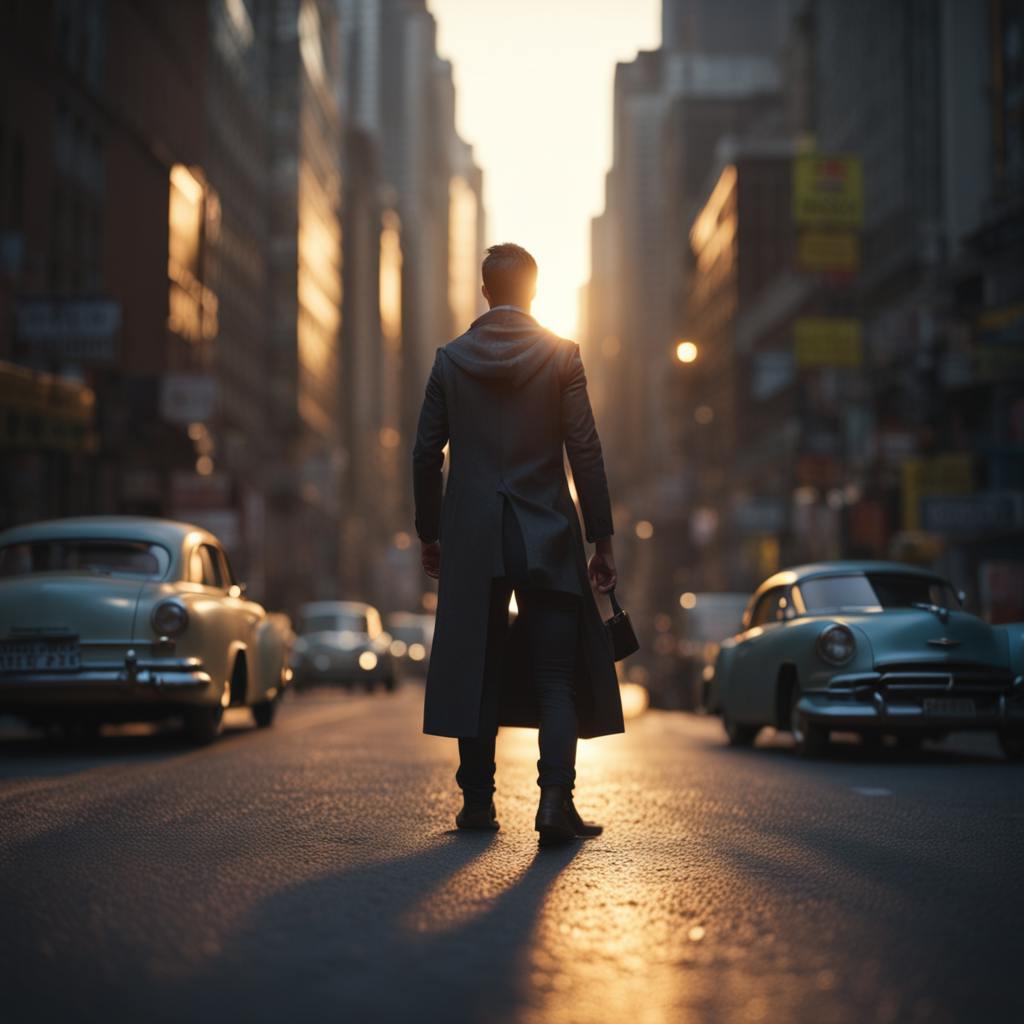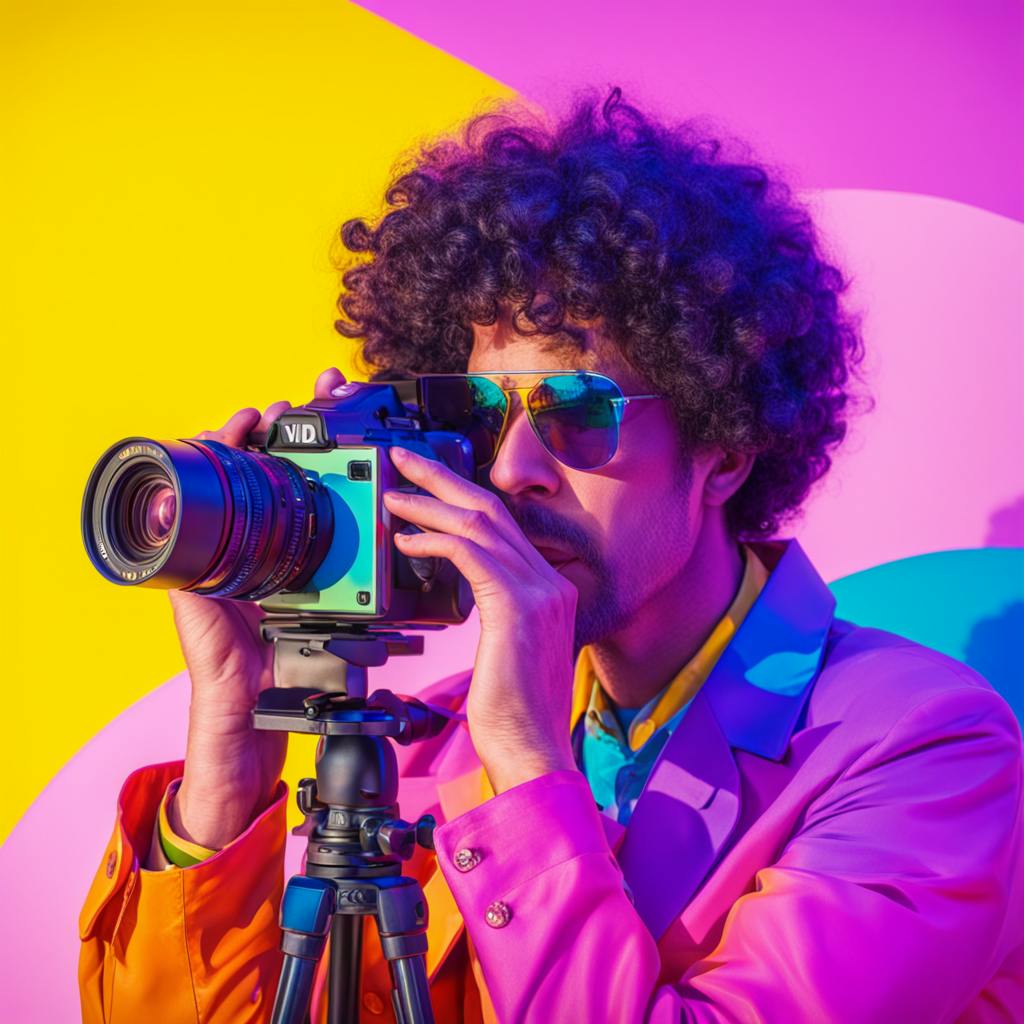In an era where technology propels society forward at an unprecedented pace, artificial intelligence (AI) has emerged as a pivotal force within creative industries. From visual arts and design to music and film, AI is reshaping how creativity is conceived, produced, and appreciated. As AI continues to weave itself into the fabric of creative industries, it challenges traditional processes and empowers creators with new capabilities, offering a tantalizing glimpse into a future ripe with innovation.
The Current Landscape of AI in Creative Industries
AI's integration into creative fields manifests in diverse and transformative ways. In the visual arts, AI algorithms can generate astonishingly intricate artworks, often indistinguishable from those crafted by human hands. These AI-powered processes assist artists in exploring new aesthetic possibilities and in breaking the boundaries of traditional artistic expression. Similarly, in music production, AI tools are capable of composing original scores, aiding musicians in their creative process, and even analyzing consumer preferences to forecast future hits.
In the realm of film and animation, AI technologies streamline the production process by automating tasks such as script analysis, editing, and visual effects creation. These capabilities not only enhance efficiency but also open up new avenues for storytelling that were previously unimaginable. As AI evolves, creative professionals stand to gain unparalleled tools that augment their talent and push the boundaries of what is possible.
Future Developments: Innovation on the Horizon
The future of AI in creative industries is brimming with potential. As AI systems become more sophisticated, they could transform creative processes into more collaborative and intuitive experiences. Imagine a world where artists engage in dynamic dialogue with AI, where collaborative works between humans and machines become the norm. Such a future could give rise to hybrid forms of art and entertainment, blending human emotion and creativity with AI-driven precision and innovation.
One significant avenue of advancement lies in personalized content creation. AI could analyze an individual's preferences and tailor experiences specifically for them, whether it be a customized playlist, an interactive film, or a personalized piece of art. This level of personalization could deepen users' engagement and revolutionize how content is consumed and appreciated.

AI made with Christophe Vacher
Addressing Common Questions
Will AI replace human creativity?
While AI can replicate aspects of human creativity, it lacks the emotional depth and unique perspectives inherent to the human experience. Instead of replacing creativity, AI acts as a powerful collaborator, enhancing human capabilities and fostering new forms of creative expression.
How can AI be ethically integrated into creative industries?
Ethical integration requires transparency, consent, and respect for intellectual property rights. It's crucial for creators and technologists to work collaboratively, ensuring AI tools are used responsibly, highlighting the importance of human agency in creative processes.
What skills will creators need in the AI-infused future?
Creators will need to broaden their skillsets, combining traditional creative talents with technological literacy. Understanding and utilizing AI tools will become increasingly important, as will critical thinking and problem-solving skills.
FAQ: Artificial Intelligence in Creative Industries
How is artificial intelligence changing the landscape of creative industries?
Artificial intelligence (AI) is revolutionizing creative industries by offering tools and solutions that enhance efficiency, creativity, and personalization. Here's how AI is reshaping the landscape:
- Automation of Routine Tasks: AI automates mundane and repetitive tasks such as data entry, video editing, and basic graphic design. This allows creative professionals to focus more on creative and strategic aspects of their work.
- Enhanced Creativity: AI-powered tools can generate new ideas and artworks, helping artists and designers push the boundaries of traditional creativity. For instance, AI algorithms like DALL-E can create unique visual content based on textual descriptions.
- Personalization: In industries like music and film, AI enables the creation of highly personalized content and recommendations, tailored to individual preferences and viewing habits.
- Analysis and Insights: AI offers advanced data analytics capabilities, providing insights into audience preferences and market trends. This helps creative professionals to make data-driven decisions and understand their audience better.
- Collaboration: AI facilitates better collaboration by efficiently managing project workflows and communication, especially in environments where remote work is prevalent.
What innovations can we expect in the creative industries through the use of artificial intelligence?
The integration of AI into creative industries is likely to lead to several exciting innovations:
- AI-Generated Content: We can expect more content created by AI, from music compositions and screenwriting to interactive virtual reality experiences. Platforms are evolving to allow creators to co-create with AI.
- Real-Time Feedback and Adaptation: AI can offer real-time feedback and suggestions during the creation process, allowing creators to adjust and enhance their work dynamically.
- Smart Design Tools: AI will offer more intuitive design tools that learn from user behavior and suggest improvements or generate design elements, thereby speeding up the creative process.
- Immersive Experiences: In film and gaming, AI will contribute to creating more immersive and responsive virtual worlds that adapt to user choices and preferences.
- Augmented Creativity: AI tools will be designed to augment human creativity, providing endless possibilities for storytelling, character development, and immersive environments.
What is the future of artificial intelligence in creative industries like film, music, or design?
The future of AI in creative industries promises an unprecedented level of innovation and transformation:
- Film: AI will be crucial in pre-production planning, from location scouting and script analysis to cast selection based on predictive success analytics. It will also enhance CGI and special effects, making them more realistic and cost-effective.
- Music: AI will continue to democratize music production. Tools that can compose and arrange music autonomously are empowering artists with limited resources, offering new sounds and styles.
- Design: In design, AI will enable rapid prototyping and iteration, shifting the emphasis from extensive manual processes to strategic design thinking. Designers will use AI to explore a broader range of aesthetic possibilities.
- Collaboration: The collaborative process across these industries will be enhanced by AI-driven tools, allowing practitioners to work together seamlessly regardless of geographic location.
- Emotional AI: Future applications could involve AI understanding and incorporating emotional cues into creative processes, enabling more engaging and empathetic content.

AI made with Christophe Vacher
How is artificial intelligence offering solutions to challenges in the creative industries?
AI offers several solutions to longstanding challenges in the creative sectors:
- Overcoming Resource Limitations: For smaller creators or companies with limited resources, AI tools can substitute for expensive human expertise and technology, making high-quality outputs more accessible.
- Enhancing Accessibility: AI can make creative tools more accessible to differently-abled artists, offering functionalities like speech-to-text or text-to-image, which lower entry barriers.
- Addressing Piracy: In music and film, AI helps in rights management and piracy detection, protecting content ownership and revenue streams.
- Reducing Costs: By automating labor-intensive processes, AI reduces production and operational costs, allowing for greater investment in creativity and innovation.
- Time Management: AI-driven scheduling and project management tools can optimize time and resource allocation, leading to more efficient workflows and the capacity to manage multiple projects simultaneously.
Overall, AI is not just a tool but a collaborative partner that is redefining the potential of creative industries, enabling new forms of artistic expression while addressing critical challenges. As this technology continues to evolve, its impact on creativity will only deepen, charting new frontiers for innovators and artists worldwide.
Conclusion: A New Era Unfolds
As we stand on the brink of a new era, the role of AI in creative industries is both dynamic and revolutionary. By unlocking unprecedented possibilities, AI is set to produce a landscape of creativity defined by innovation and diversity. The integration of AI into these industries signifies not just an evolution but a transformative leap forward. As creators continue to explore this exciting frontier, the harmony between human creativity and artificial intelligence will undoubtedly yield remarkable and unforeseen innovations.
The promise of AI in creative industries is vast, heralding a future where technology and creativity intertwine seamlessly, crafting experiences that captivate, inspire, and endure. This new era of innovation offers a fresh canvas upon which the future of creativity will be continuously painted.

